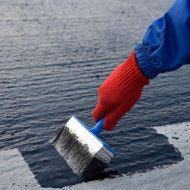How to Choose a Whole House Water Filtration System
A whole-house water filter can prevent waterborne sediment, harsh chemicals, heavy metals, and nasty smells from ever reaching your home’s faucets. However, there are several different water filter technologies to consider. Since each one specializes in eliminating certain contaminants, you’ll need to choose a suitable system based on the common ones where you live.
Water softener filtration systems can be installed by a professional plumber, who will also help you confirm which setup is best for your home. To better understand whole-house water filtration methods, we’ll walk you through everything you need to know about this important technology.
Assessing Your Water Quality
The first step is to test your home’s water quality to determine which, if any, contaminants are lurking within the municipal water supply. To do this, research where your water comes from. Your local city or county should provide details on their official website. Municipalities draw water from reservoirs, lakes, rivers, and even wells, all of which could be contaminated in a variety of ways - even after going through the municpal filtration and treatment center. Several methods for testing water quality vary according to complexity and the contaminants they evaluate. When researching where your water comes from, you will find recommendations for appropriate testing methods.
Identifying Specific Contaminants
Occasionally, environmental mishaps lead to threats of specific contaminants entering the water supply. For instance, an oil spill in a local lake may have repercussions regarding the cleanliness of the water flowing into nearby homes. By paying attention to the local news, you can be aware of such disasters and prepare to test for contaminants immediately.
Understanding Different Filtration Technologies
Several different types of water filters are available to homes and businesses, depending on your situation. Understanding which is best for your home or facility is a major step toward finishing this important upgrade.
- Activated carbon - This highly porous form of carbon absorbs various chemicals, such as chlorine, as the water passes through it. Most contaminants will simply stick to the carbon surface, effectively removing them from the fluid.
- Reverse osmosis - This process uses a semipermeable membrane to capture pollutants such as bacteria, dissolved salt, and pyrogens. This filtration method is very powerful, though it requires a consistent schedule of filter replacements to remain effective.
- UV disinfection - UV light is enough to destroy a wide array of bacteria and viruses. However, a second filter may be required to handle chemical threats.
- Distillation units - These apply heat to water until it turns to steam. As it returns to a liquid state, many pollutants are left behind in the process.
- Ion exchange filters - By removing dissolved ions from water, these filters increase softness and remove excess minerals, including calcium and magnesium, to extend the lifespan of your appliances and plumbing fixtures.
- Ceramic filters - This porous material separates pathogens from the water. When using a UV setup, you may wish to use an additional filter in tandem that better handles chemical exposure.
Determining Your Water Usage Needs
When it comes to home water usage, the number of bathrooms in your house is a solid indicator of the type of filter you will need. A home with one to three bathrooms will have vastly different options than a building with four or more. Another factor to keep in mind is the flow rate of fixtures like your faucets and toilets. Your water filter flow rate should not exceed the capacity of your other fixtures. If it does, it can lead to leaking or pressurized bursts of fluid in high-stress areas.
Evaluating Installation and Maintenance Requirements
Before installing any water filters, know the exact size and capacity of the various plumbing fixtures and water appliances throughout your house. Matching the right size filter to each piece of equipment, or accounting for demand in a single whole-house water filtration system, is the name of the game. When it comes to maintenance, regular inspections are a great means of knowing what work needs to be done. Also, following the filter manufacturer’s recommendations will ensure your water supply is always being filtered effectively. Handling small problems promptly will prevent them from turning into massive issues down the road.
Considering Certification and Standards
While it is not necessary to memorize the ins and outs of every regulation, it is important to acquire a basic understanding of the certification standards promoted in your region. A reputable regulatory body such as the Water Quality Association or NSF International will have more than enough information to give you perspective on what is allowed in your area. You can also learn more about various plumbing materials, chemicals, and treatment methods from their online resources.
Comparing Costs and Budget
A whole house water filtration system can cost anywhere from a few hundred to a few thousand dollars. The type of filter, size, and complexity of your setup will determine the overall cost. On top of the purchase price, you will need to account for installation and maintenance. Professional installation is highly recommended for a project of this importance. As for maintenance, you will likely learn to do most of it on your own. The cost of replacement filters will vary depending on the system, but count on spending roughly $100 each year for most systems.
Reading Reviews and Seeking Professional Advice
Another helpful resource to check before making a purchase is user reviews from trusted sources on the internet. Try to find a few different reviews across multiple platforms to get a more accurate picture of how a product compares to the rest of those on the market. Professional advice is also worth seeking, especially if you know the plumber through friends or family. Hiring a pro is easier than ever before, thanks to modern technology and community-driven product reviews.
Now that you have a better grasp of what is involved in choosing a water filtration system don't delay. Upgrade to clean, soft water throughout your home! Discover the benefits of whole-house water filtration systems today.
More to Read:
Previous Posts:








